Deborah Pittman’s father was not a fan of the clarinet. But, luckily, he was a fan of supporting his daughter’s ambitions. “He did not like classical music, and he was very disappointed when I went into that field, but he was there every step of the way, helping me,” she says. Parental backing allowed Pittman, originally from the Brooklyn borough of New York City, to study at the Conservatory of Music at Brooklyn College and the Manhattan School of Music.
She worked as a clarinetist on Broadway, then got an offer to play for the Sacramento Symphony in 1981. She has remained in the Capital Region since, but her artistic endeavors have expanded beyond music, including ceramics, filmmaking, writing and stage productions — some of which star puppets.
Pittman added academia to her resume around 1986, teaching part time at UC Davis while continuing to work at the symphony. She ended her tenure with the orchestra after nine years and joined the Sacramento State music department in 1991. She retired from the university in 2013, but around 1994, the last year she taught at UC Davis, she got her hands off her clarinet and into some clay at a ceramics class on campus. It was her first time doing a tactile art form: “I became addicted that day,” she says. She’s been sculpting ever since.
Her forays into filmmaking have also been somewhat fortuitous. Pittman was asked to be a guest speaker for 2020 Sacramento Summer Music, a classical chamber music program in Sacramento in July 2020, and the program director approached Pittman to create a film based on that presentation, “Composers of the African Diaspora.” The resulting film, “The Extraordinary Life of Joseph Bologne Chevalier de Saint-Georges,” is being produced by the VITA Academy, a Sacramento-based music education organization, with its premiere Aug. 27 at the Crest Theater in Sacramento.
Pittman is coproducer and scriptwriter for the project, which is about Joseph Bologne, Chevalier de Saint-Georges, a Black French composer from the 1700s. “His father was a plantation owner, and his mom was one of the enslaved people. His music really had similarities to Mozart,” she says, adding that few people today have heard of him. The film will be distributed for free to educators, and the producers also created an interactive study guide to accompany it.
You describe yourself as a performance artist and writer. Can you tell me more about that?
When I taught the (general education) classes … at UC Davis and Sac State, both had a large writing component, and I decided that if my students had to write (essays), that I was going to write also, because I would have a different understanding of what they had to do to satisfy my assignment. …
I started writing pieces that were connected to classical music. … I wrote several of these that actually had me playing as well. … The first big piece I wrote was early in my Sac State years. I was always fascinated by this piece called “Pictures at an Exhibition” by (Modest) Mussorgsky. … So I wrote a story that connected all of those pictures in order, and that was the first big production we did at Sac State for thousands of schoolchildren. … There was the Sac State orchestra and Richard Bay Puppet Theatre, and S/BAD Black Art of Dance (troupe). … We did everything in black light.
When Deborah Pittman was a professor of music at UC Davis in
1994, she took a ceramics class and became hooked to the medium.
(Photo courtesy of Deborah Pittman)

I’ve done several guest speaker events since the lockdown. … I did a presentation on the “Composers of the African Diaspora,” and then I did a second talk for a different organization a few weeks after that. And then I did a presentation for a group of therapists in the Bay Area about my experiences in the medical health system as a Black woman. And my famous catch line is, “Take a white man with you if you want to get something done,” because I had this horrible experience where this doctor was not listening to me. … So, finally, I just took a friend with me, and suddenly, the doctor was willing to give me a second opinion, and then I had the (gallbladder) surgery. …
I did “Composers of the African Diaspora” again a few months later and … again in June (2021, on Zoom, by Symphony d’Oro). So that has become a very popular lecture. And when it first started, I was really reluctant to do it, because I just thought there were so many people out there who knew so much more about this than I did. …
I was asked to do a presentation for the convocation in my former department at Sac State (in November 2020, and I called it “Black Is the New Black”) … about inclusion and onward, but … it was like, “Why am I all of a sudden the expert on this? Because I’m Black?” It was a powerfully challenging talk for me because I had to talk about some suggestions that I might make that would make that department more inclusive … and things that have happened in the past. I had to decide, am I going to just really come out and talk about what really happened in my 23 years here? … That event was in November, and I got paid for it (in May). And I don’t want to say that they sat on the check, but I just found that interesting. I have not spoken to or heard from the chair there since the night of the event. …
Why, in 23 years of teaching there and all of the years that have passed since I’ve retired, have I never been invited to speak on this topic … when I could have been a part of making things different? I don’t know for sure whether this is a fear effort or whether this is an attempt to be on the right side of history, as they say.
You said that you were reluctant at first. Did you feel differently about it afterward?
I did (“Composers of the African Diaspora”) for a group of chamber music students. … The kids were very, very focused and very interested, and they had them write reflections afterwards, and that was probably the best feeling … reading some of those reflections. … So each presentation on that topic, I … continued to do more research and to update that presentation. …
The director of … (Summer Music) said, “I’ve seen a lot of your multimedia work. How do you feel about creating a piece about this composer?” And I was excited. … (She was interested in) making a film geared towards fourth through sixth graders and being able to get grants and financial support to offer this for free to teachers as a teaching aid. So that’s been an unbelievable outcome of that first lecture; all the other lectures that have piggybacked onto it.
What other projects are you involved in?
Capital Public Radio is having a new concert series, and … the first concert is … (The) Chevalier Quartet, who will play two pieces of Chevalier, and … a piece of Samuel Coleridge-Taylor. … (The concert, which took place in June, is available on YouTube; Pittman joins for “Larghetto Affettuoso” by Samuel Coleridge-Taylor.)
(Chevalier de Saint-Georges) was really famous and very popular in his time. … Unfortunately, after his death, Napoleon squashed all of his music and had his music taken out of the repertoire. …
I did a (multimedia) piece about my dad many years ago called “The World According to Earl,” and my dad was quite the character, and he had all of these sayings. … The initial piece was just me and a projector and some family photos and some music that I’d written and a narration and me playing the clarinet, and the second iteration of it was with my trio, and we added a life-size puppet of my dad. … As it turns out, I did the premiere of the piece the weekend that I returned from my dad’s funeral.
And then you have your visual art.
I’m getting ready for the (Sac Open Studios) tour, which happens every September. And I’ve participated in that for about six years. It was canceled last year. …
Up until about (four) months ago, I was on the planning committee for the (National Council on Education for the Ceramic Arts) conference; it’s going to be in Sacramento in 2022.
Deborah Pittman’s ceramic work largely consists of different
types of vessels. (Photo courtesy of Deborah Pittman)

I’ve taken a huge interest lately in funerary vessels, so I do a lot of urns now, hoping that I can get myself on a track with 50 percent of my (output being urns). For some reason, I’ve become really, really deeply invested in making forever homes for people.
How does your work reach people?
Prior to the quarantine, I did two big shows a year. One was the Open Studios tour in September. … I also have been doing the Crocker Holiday (Artisan) Market for about five or six years, which didn’t happen yet last year, and it’s not going to happen this year, which is really heartbreaking, because those are my two big opportunities to sell. I don’t sell my work online for many reasons, but one of them is just the cost and the fragility of mailing ceramics. …
Right before the shutdown, I did a commission for an urn, and that was interesting and challenging on so many levels, because the two techniques that the person wanted me to employ were opposite. … That kind of confirms the fact that I don’t really like to do commissions; I like to create the art and say, “This is what I have.” … This is not like what I’ve spent my life doing, which is music. This is what keeps me sane. … It gave me another window for artistic expression where I don’t really have to follow the rules. As a classical musician, the rules are very, very strict … but in ceramics, I can break the rules all the time. …
The first time I ever was asked to do a show, I said no, because I was very attached to my vases. … (So I took my best 15 pieces and) put them on the dining room table, and I lived with them for about two months, and then I was kind of ready to let them go. …
The Spears Gallery down in Elk Grove … is Stephanie and (her husband John Spears). … They have a gallery in their home, and it’s amazing, because they have so much art in their home. If … I do a show with them, then my art is on pedestals, but you feel like you’re in a museum or a really high-end gallery. … People come in to see the shows (are people) who really know art very well and are not afraid of the prices.
Deborah Pittman shows her ceramic artwork at The Spears Gallery
in Elk Grove. (Photo courtesy of Deborah Pittman)
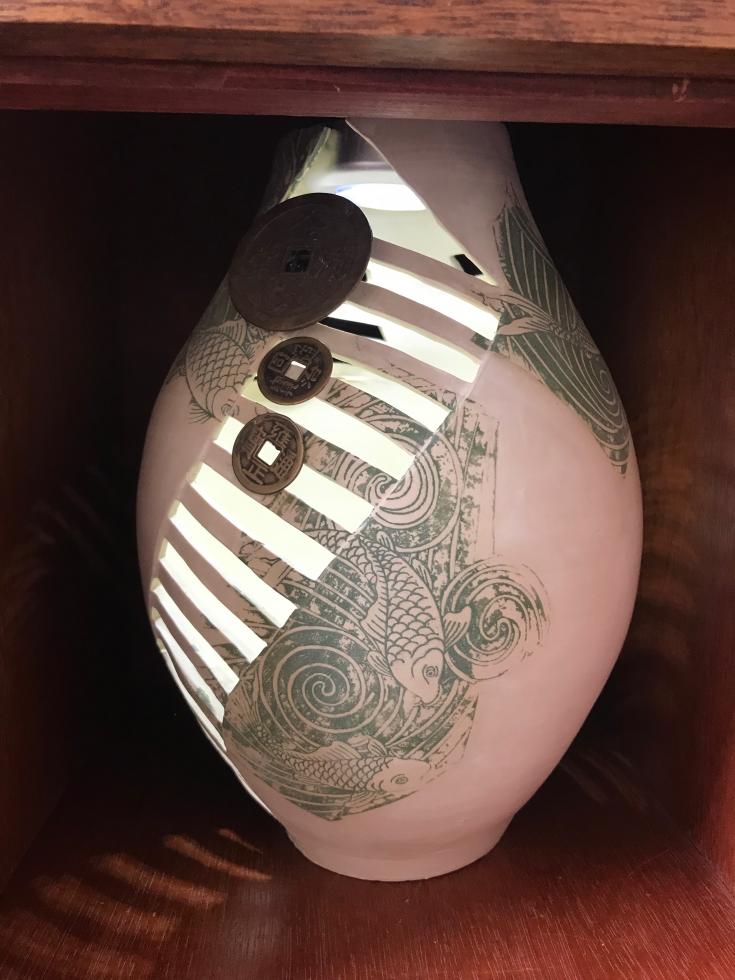
Maybe about 20-25 (percent) from my ceramics. Needless to say, it was a year without any ceramics sales. … I would say maybe 15 percent from actual performances. Last year, I did a six-part tour — I play Native American flutes, and so I played a Native American flute concerto with a couple of ensembles in Sacramento with the UC Davis Concert Band in the Bay Area with the San Francisco Lesbian Gay Freedom Band, Symphony d’Oro, Woodside Community Band, San Jose Metropolitan Band, Roseville Community (Concert) Band. … I did the last performance of that piece like two weeks before the lockdown.
So how many instruments do you play?
Well, not that many. I play clarinet and bass clarinet, and I play a wide variety of Native American flutes — they come in a lot of different sizes and keys and things of that nature.
I was wondering if you had any more instruments up your sleeve!
No more instruments up my sleeve! But mostly, the income that I get from playing music … (is from) the Sacramento Choral Society (& Orchestra).
How did you adjust during the pandemic, since your audiences weren’t able to engage with you in person?
I will say that I probably shut down entirely the first four months. I did not do any pottery. I went to my studio and looked around, and I felt really guilty. I thought, like, “What, I’m going to come have fun in the clay when people are dying and losing their livelihoods and their lives?” … I didn’t play any of my instruments very much at all in the first four months. Someone called me and asked me to play for a virtual memorial service, I would do that. But mostly I slept. … I think it’s one of the things that inspired me to finally create (my) website so that I could have some of my stuff out there in the world, even if I couldn’t see people in person.
I did a lot of writing. I managed to get two pieces into two anthologies: one travel anthology (Northern California Publishers & Authors, “Destination: The World Anthologies, Vol. 2”), which just came out, has a short story about … my near-drowning in Africa. … And I submitted a monologue (to Stories on Stage) about a real event called “Dear Neighbor,” and they are publishing that in their (“Twenty Twenty Anthology”) as well (as being) … performed live virtually. … I always describe myself as an armchair activist, and I realized that it was time to move on from being that. … Some of these writings, some of these presentations were my version of slowly stepping out and saying, “Yeah, I’ve been really pretty quiet up to now, but this is how I really feel.”
You removed the armchair.
Deborah Pittman, left, met Ruby Bridges, right, at Sacramento
State in 2019. (Photo courtesy of Deborah Pittman)
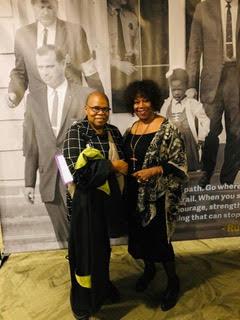
That summer, when I visited my friend and my family back East … we went to … the town (Stockbridge, Massachusetts) with a Norman Rockwell Museum (and saw) … the painting of Ruby Bridges (the first Black child to desegregate an all-white school in Louisiana in 1960) being escorted to school, and so that really gave me the impetus to do the piece, which is called “Big Dreams / Small Shoulders.” … I had a Bunraku-style puppet made of Ruby Bridges as a (6-year-old) in that white dress. …
Deborah Pittman, center, plays clarinet for a performance piece
she wrote that includes a life-size puppet of Ruby Bridges.
(Photo courtesy of Deborah Pittman)
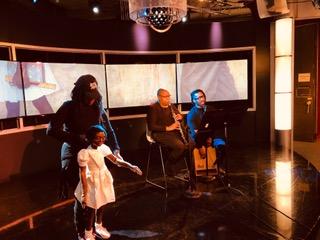
Is there anything else that you want to add?
My parents, in general, went through a lot to provide me with what I needed to learn how to be a clarinetist, and my father did not like the clarinet. … I had gone to the rehab facility (in 2013) to see him (with) a friend … and he said, “OK, I think you guys need to get ready to go now,” and I thought, “I just came 3,000 miles. What do you mean?” … My friend said, “But Mr. Pittman, we bought our instruments — we are going to play before we leave,” and he said, “Oh no, you’re not.” … My friend was like, “I’m not insulted.” I said, “I know … you know my dad.” I said I actually feel pretty good that he could actually say he’s at a point in his life where he could actually say what he wanted to say, and what he has to say is that he is still not a fan of the clarinet.
Edited for length and clarity.
–
Stay up to date on art and culture in the Capital Region: Follow @comstocksmag on Instagram!
Recommended For You
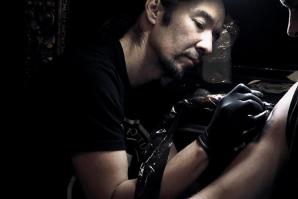
Art Exposed: Akira Beard
How painting saved this artist’s life, and how tattooing supports his work
Akira Beard recently became a tattoo artist so he could “go
anywhere, tattoo, make money while I’m there, trying to open up
doors of opportunity with my actual art,” he says.

Art Exposed: June Steckler
A painter and curator learns it’s easier to manage other people’s art and finds gifts in aging
June Steckler is optimistic about the Capital Region’s art scene
and her role in it as both artist and curator.
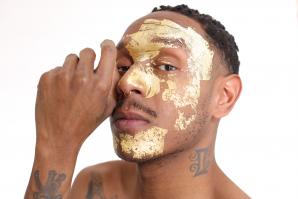
Art Exposed: Jupiter Lockett
A Sacramento artist uses his paintings to address race and social issues
Jupiter Lockett paints in a free and childlike manner, but
his subject matter focuses on the Black experience and is
intended to make the viewer uncomfortable.
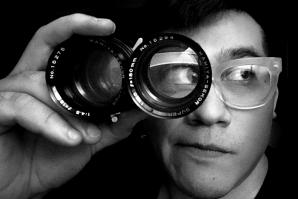
Art Exposed: Octavio Valencia
A photographer talks about fashion, mental illness and a close encounter with Anna Wintour
Octavio Valencia has a secret identity. Or two.



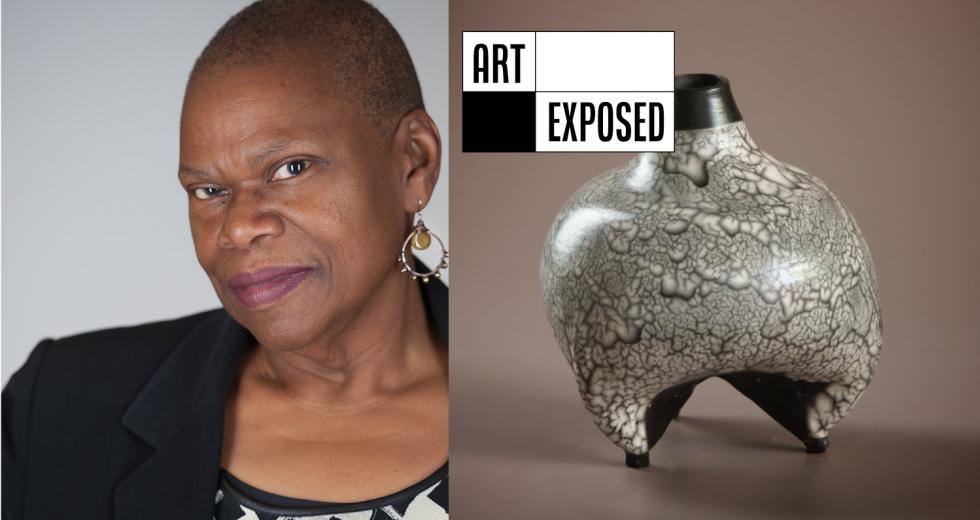
Comments
Deborah is such a gifted artist. I am honored to know her. I am thrilled she is helping to bring the work of Chavalier de Saint Georges into public limelight. His music fills me and lifts me. Chavalier de Saint Georges is my favorite composer.
It is important to be honest and tell others how you feel about your experiences in life. Deborah is helping others to evolve through her honesty. If people don't hear the truth, then they don't move to change things for the better.
What a beautiful, thoughtful article. You are an amazing Black woman human being who pretends she is just like the rest of us mundane mortals.
Deborah is an unusual blend of artist–academic, musician, writer, potter, playwright, and does her work with a desire to tell stories and and uncover truth. She also happens to be very very funny.